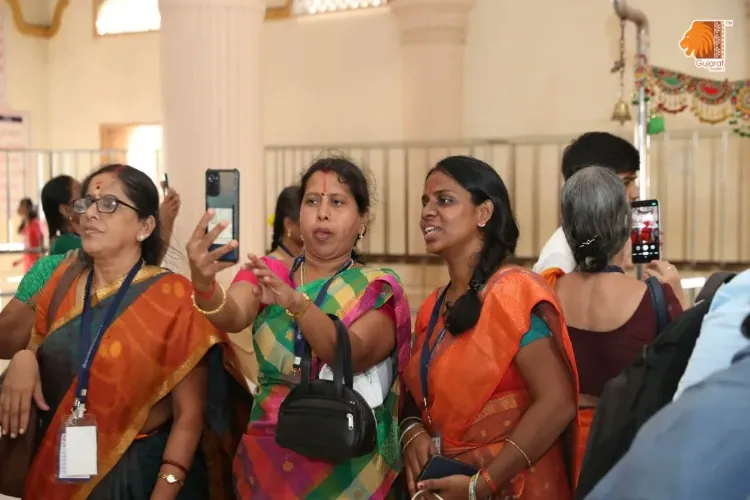
Amir Khan
Prime Minister Narendra Modi's statements at Saurashtra Tamil Sangamam 2023 reflect India's rich cultural heritage and its emphasis on peace, harmony, and dialogue. The Prime Minister said something very important for our times. He said, "We must not emphasize civilizational clash but cooperation. We must not advance conflict but confluence and conversations. We have to create emotional bonds." These words echo the sentiments of India's ancient philosophers and thinkers, who emphasized the importance of unity, compassion, and mutual respect.
The Gujarat Government had organized the 'Saurashtra Tamil Sangamam', in April to help thousands of people with roots in the Saurashtra region to reconnect with their roots in Tamil Nadu. Narendra Modi praised the shared centuries-old cultural links between Saurashtra and Tamil Nadu. He noted that this celebration of the country's unity fulfills the dreams of freedom fighters who sacrificed their lives for a united India. Modi also highlighted the significance of Sangams in Indian tradition and culture, including the role they have played in shaping the country.
PM’s statement should be seen in the context of India's ancient tradition of "ahimsa," or non-violence. This principle was famously championed by Mahatma Gandhi, who used it as a tool to achieve India's independence from British colonial rule. Gandhi believed that non-violence was not only a moral imperative but also an effective means of social and political change. He famously stated, "An eye for an eye will only make the whole world blind."
The Prime Minister’s statement has both internal and external implications. Within the country, it is a message of brotherhood between various religious groups. Hindus, Muslims, Sikhs, Jains, and Christians are key demographic groups of India and to keep them united for a stronger India is the most important message from the stage of Sangamam.
Likewise, India's tradition of cooperation and dialogue is also reflected in its approach to international relations. India has a long history of engaging with other cultures and civilizations, dating back to ancient times. The Mauryan emperor Ashoka, who ruled over much of the Indian subcontinent in the 3rd century BCE, is famous for his edicts promoting religious tolerance and peaceful coexistence. Ashoka's message of unity and cooperation has resonated through the ages and continues to inspire India's foreign policy today.
In modern times, India has played a leading role in promoting international cooperation and dialogue. As Prime Minister Modi stated, "We have to create emotional bonds." This idea is at the heart of India's approach to diplomacy, which emphasizes the importance of building personal relationships and fostering mutual understanding. India has played a key role in promoting initiatives such as the Non-Aligned Movement, which seeks to promote cooperation between developing nations, SCO, and the BRICS grouping of emerging economies.
India's tradition of cooperation and dialogue is also reflected in its approach to its neighbors. Despite its many challenges, India has sought to build friendly and cooperative relationships with its neighbors, recognizing that regional stability is vital to its security and prosperity. As former Indian Prime Minister Atal Bihari Vajpayee once stated, "You can change your friends, but not your neighbors."
ALSO READ: Tahmeena and Shariqa are smiling as they rose from society's curbs
The Sangamam reflects the confluence of nationalist fervor of Sardar Patel and famed Tamil poet Subramania Bharati and is a symbol of North-South unity and the Prime Minister's message extends way beyond this to the entire country. We have to strengthen other symbols of unity and transcend the fault lines of religion, region, language, and caste. As the world faces increasingly complex challenges, India's emphasis on peace, harmony, and dialogue offers a powerful example of how nations can work together to build a brighter future for all. As Prime Minister Modi stated, "We have to create emotional bonds." Let us embrace this tradition with open hearts and minds, and work together to build a world that is more peaceful, prosperous, and just for everyone.
(Amir Khan is a New Delhi-based writer and a chef. Views are personal)
